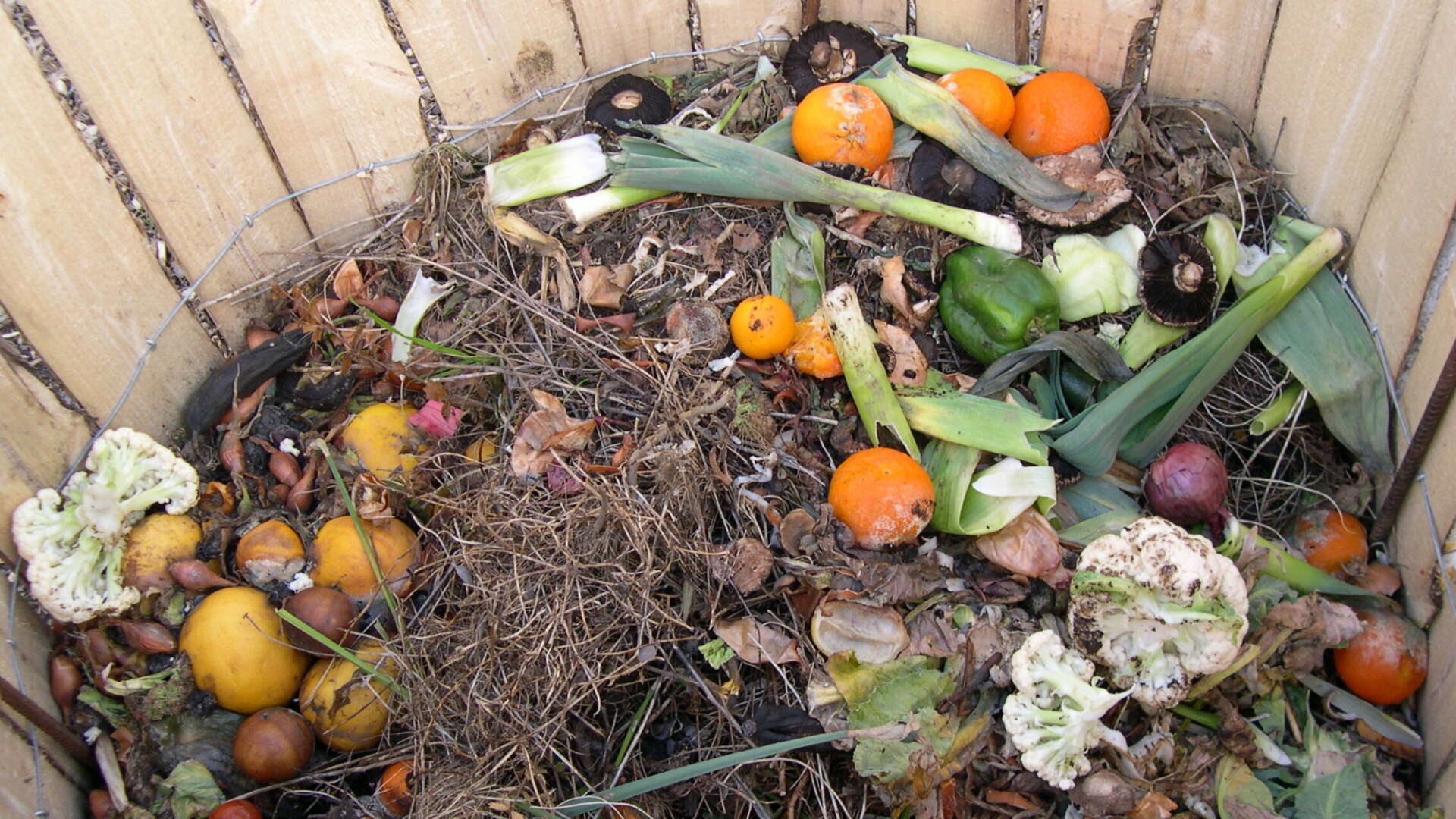Composting
What can I compost?

Anything that was once living will compost, but some items are best avoided.
For best results, use a mixture of ingredients. The right balance is something you learn by experience, but a rough guide is to use equal amounts by volume of greens and browns (see below).
Meat, dairy and cooked food can attract vermin and should not be home-composted unless you have a sealed hot composting system.
Some things, like grass mowings and soft young weeds (both classed as a 'green) rot quickly. On their own they will decay to a smelly mess but mixed with 'browns' they work as activators to get the composting started.
Older and tougher plant material is slower to rot but gives body to the finished compost - and usually makes up the bulk of a compost heap. Woody items decay very slowly; they are best chopped or shredded first, where appropriate.
Items you can add to your compost bin
| 'Greens' (nitrogen-rich ingredients) | 'Browns' (carbon-rich ingredients) |
|---|---|
| Grass cuttings | Cardboard eg cereal packets, toilet roll tubes and egg boxes |
| Young weeds | Waste paper and junk mail |
| Nettles (not roots) | Paper towels & bags |
| Comfrey leaves | Bedding (hay, straw, shredded paper, wood shavings) from vegetarian pets eg rabbits and guinea pigs |
| Urine (ideally diluted 20:1) | Tough hedge clippings |
| Uncooked fruit and vegetable peelings | Woody prunings |
| Tea leaves and coffee grounds | Old bedding plants |
| Soft green prunings | Straw |
| Animal manure from herbivores eg cows and horses | |
| Poultry manure |
Other compostable items
- Wood ash, in moderation
- Hair, nail clippings
- Egg shells
- Natural fibres, e.g. wool and cotton
Do NOT compost
- Meat, fish, dairy products or cooked food, unless you have a sealed hot composting system
- Coal & coke ash
- Cat litter
- Dog faeces
- Disposable nappies
There are many different compost systems you can use, choosing the right one for the items you have to hand the most is the best way to get the most out of your composting. Read our handy guide here.
Weeing on your compost heap!
We're often asked if it's okay to wee on your compost heap. It's fine to add urine to your heap, but our advice is to dilute it 20:1 with water, for safety, and in order to minimise odour. This dilution provides enough nitrogen to “feed” microbial activity and accelerate decomposition, without overwhelming the heap.
